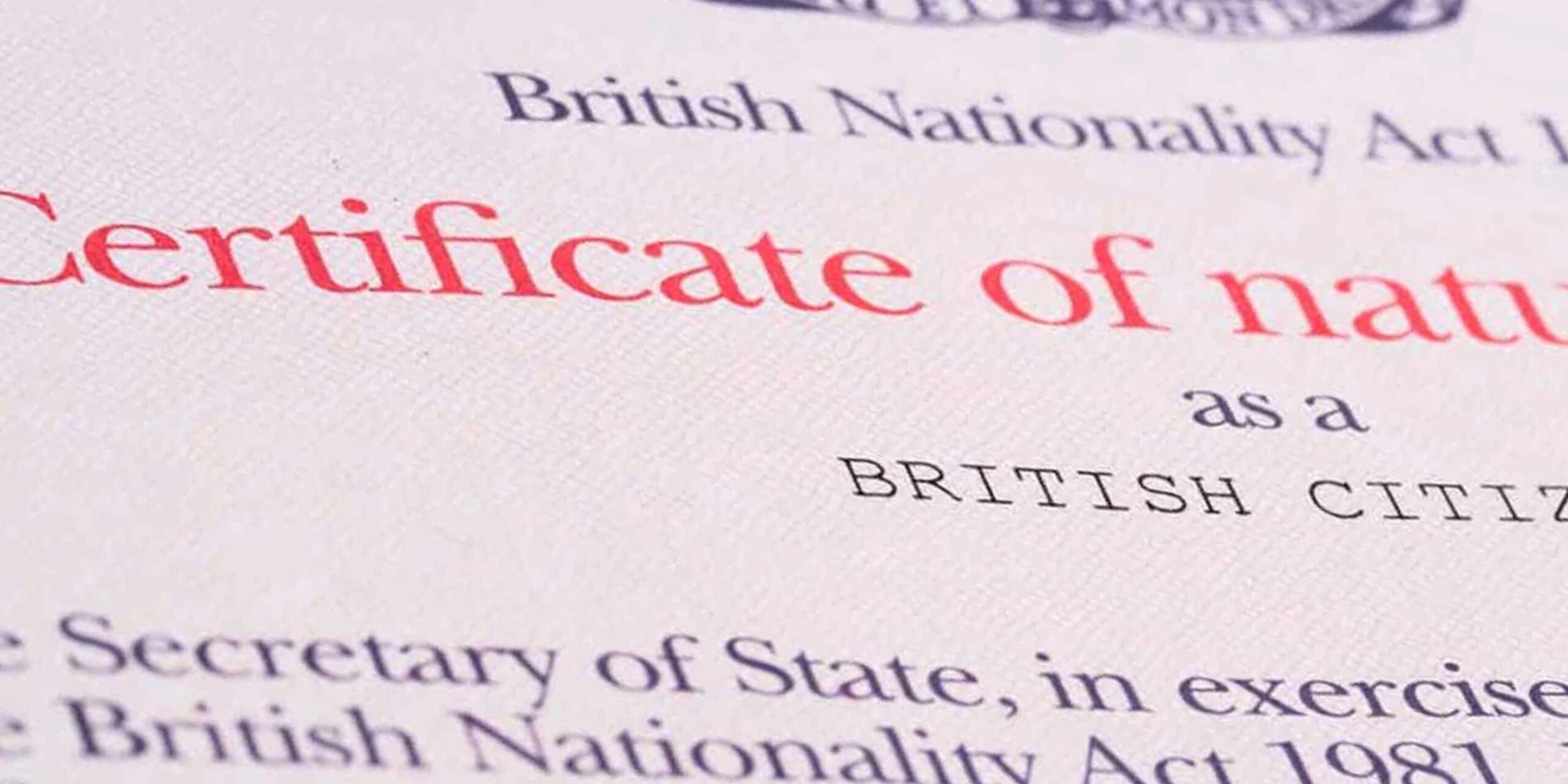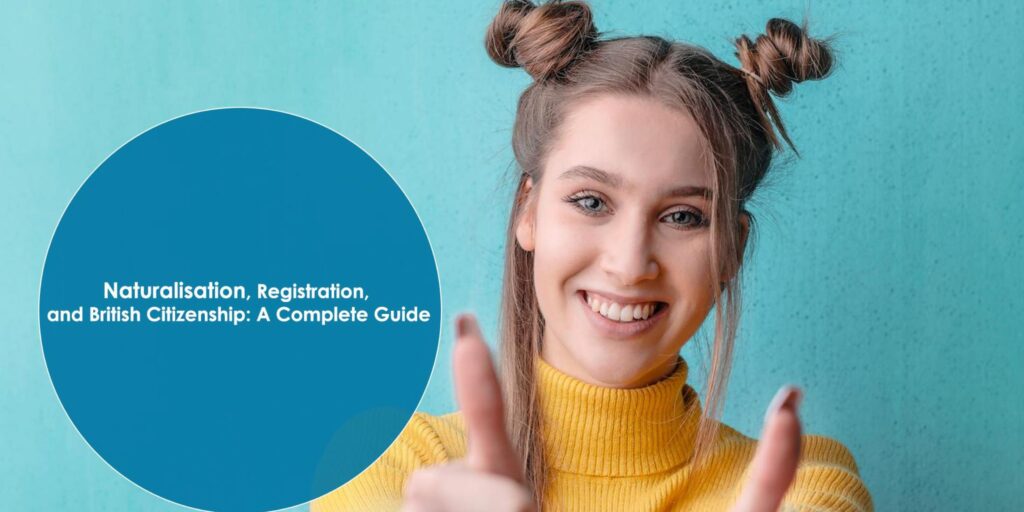Becoming a British citizen is a major milestone for many living in the UK. Whether you’re seeking the freedom to travel, the right to vote, or the security of permanent status, understanding the pathways to citizenship is essential. This guide explores the processes of naturalisation and registration, clarifying the differences between citizenship and naturalisation, which are often confused. The UK immigration system is changing again; we look at how it might affect you and where to seek help and advice.
What Does It Mean to Get Naturalisation?
Naturalisation is the legal process by which a foreign national becomes a British citizen. It is the most common route for adults who were not born in the UK or to British parents. To be eligible, applicants typically need to:
- Be aged 18 or over.
- Have held Indefinite Leave to Remain (ILR) or settled status for at least 12 months.
- Have lived in the UK for at least 5 years before applying.
- Not have spent more than 450 days outside the UK during the 5-year period.
- Not have spent more than 90 days outside the UK in the 12 months preceding the application.
- Pass the Life in the UK Test.
- Meet the English language requirement.
Under the Nationality and Borders Act 2022, requirements for lawful residence have been simplified, allowing applicants to demonstrate their residency more easily (GOV.UK Guide AN, September 2025).
What Is the Difference Between Citizenship and Naturalisation?
British citizenship can be acquired in several ways:
- By Birth: Children born in the UK to British parents automatically acquire citizenship.
- By Descent: Children born abroad to British parents may acquire citizenship “by descent.”
- By Registration: Certain individuals, such as children born in the UK to non-British parents, can register as British citizens.
- By Naturalisation: Adults who have lived in the UK for a qualifying period and meet eligibility requirements can apply for citizenship.
Naturalisation is a formal legal process for those who were not born British, while registration is often a simpler route available to certain groups.
Can You Have a British Passport Without Naturalisation?
Yes, but only if you are already a British citizen. Individuals who acquire British citizenship by birth, descent, or registration are automatically entitled to a British passport.
- By Birth in the UK: Children born to at least one British parent automatically acquire citizenship and can apply for a passport once birth and parentage are verified.
- By Descent: Children born abroad to British parents may acquire citizenship “by descent,” with some restrictions on passing citizenship to their own children born abroad.
- By Registration: Certain groups, such as children born in the UK to non-British parents, may register as British citizens and become eligible for a passport.

However, individuals holding Indefinite Leave to Remain (ILR) or settled status under the EU Settlement Scheme are not automatically British citizens. While these statuses allow them to live and work in the UK indefinitely, they do not confer voting rights or eligibility for a British passport. Naturalisation is the route to obtaining full citizenship and a passport.
What Is The Naturalisation Process in the UK?
Naturalisation is a structured legal process, and understanding each step will make the journey smoother. It’s advised that you seek help from an immigration solicitor to avoid mistakes and delays.
1. Check Eligibility
Confirm that you meet all the legal requirements, including age, residency, absence limits, Life in the UK Test, and English proficiency. Keep a detailed record of your absences from the UK. Immigration solicitors can review your travel history to confirm eligibility before you apply.
2. Prepare Documents
- Required documents include:
- Passport(s) covering your residence in the UK.
- Proof of ILR or settled status.
- Life in the UK Test pass certificate.
- English language qualification (e.g., IELTS or approved UK qualification).
- Evidence of residence and employment history.
Practical Tip: Missing or incorrect documents are common causes of delays or refusals. Immigration Lawyers can organise, verify, and certify documents to meet Home Office standards.
3. Complete the Application Form (Form AN)
Form AN is the official naturalisation application form, requiring personal details, residency information, travel history, and supporting evidence.
- Current fee for adult naturalisation: £1,557 (as of September 2025).
- Biometric information is required.
Practical Tip: Get help from an immigration professional. Solicitors often review applications line by line to minimise errors and ensure that supporting evidence aligns with the information provided.
4. Biometric Appointment
Applicants submit fingerprints and photographs at a Home Office or approved centre for identity verification.
5. Decision
The Home Office typically processes standard applications within six months. Approval or refusal is communicated in writing.
Practical Tip: If your application is refused, a solicitor can advise on appeals or reconsideration options, helping you navigate the process legally.
6. Citizenship Ceremony
Once approved, applicants attend a ceremony to take the Oath of Allegiance and pledge loyalty to the UK. You will then receive your Certificate of Naturalisation, which is required to apply for a British passport.
Schedule your ceremony promptly, as delays can slow down your passport application. As of September 2025, applicants no longer need to request Home Office records for entry and exit from the UK before applying (GOV.UK).
What Happens After Naturalisation?
Naturalisation grants full citizenship rights and responsibilities:
- Full Citizenship Rights
- Voting: Participate in general elections, local elections, and referendums.
- Passport: Apply for a British passport, which provides visa-free travel to over 180 countries (Mulgrave Law blog on British passports).
- Residency: No longer need to renew ILR or worry about visa restrictions.
- Family Sponsorship: Sponsor certain relatives for visas or citizenship.
You also now have additional Legal Responsibilities.
- Uphold UK laws and pay taxes.
- Serve on a jury if called.
- Declare dual nationality where required (if applicable).
Lawyer Tips Post-Naturalisation
- Apply for your British passport immediately. Processing usually takes 6–10 weeks.
- Keep your Certificate of Naturalisation safe.
- Update official records with banks, employers, and local authorities.
- Consult a solicitor for family sponsorship or international relocation.
Is UK Naturalisation the Same as Permanent Residency?
Naturalisation is sometimes confused with Permanent Residency (PR)! The difference is that PR allows individuals to live and work in the UK without time restrictions. However, it does not confer the full rights of citizenship. PR holders cannot vote or apply for a British passport. Naturalisation grants full citizenship, including voting and passport eligibility.
Recent Changes to UK Immigration Policies
Recent months have seen several changes to ILR and citizenship rules (watch out for more changes to settlement policies as the UK is working on reducing hight net migration levels).
1. Increased Wait Times for ILR: Most migrants now must wait ten years instead of five to qualify for ILR, except for family visa holders (Citizens Advice).
2. Stricter Eligibility Criteria: Requirements now include consistent full-time employment, regular National Insurance contributions, high English proficiency, and community involvement (Financial Times).
3. Potential Political Impacts: Proposals by Reform UK suggest replacing ILR with renewable five-year work visas, restricting welfare access, and limiting family sponsorship, which could affect future citizenship eligibility (Reuters).
Read more about: click here
Why Pursue Naturalisation Now
Naturalisation offers:
- Full Citizenship Rights: Voting, public services, and passport eligibility.
- Stability: Protection against policy changes affecting ILR holders.
- Family Reunification: Easier sponsorship of relatives.
Given the evolving legal landscape, applying sooner rather than later secures your status and rights.
How an Immigration Solicitor Can Help
The immigration landscape is daunting, so it’s advised to seek legal guidance to ensure your application is done right and done the first time. Even small errors will lead to refusals. Experienced solicitors can:
- Assess eligibility and advise on the best course of action.
- Assist with gathering and organising documentation.
- Ensure applications are accurate and complete.
- Represent clients in case of issues or complications with the Home Office.
Solicitors help minimise mistakes, reduce delays, and improve the likelihood of approval.
Final Thoughts
Naturalisation is a major step toward becoming a full member of British society. Understanding the process, rights, responsibilities, and recent changes allows applicants to approach it with confidence. Seeking professional legal advice can streamline the journey and significantly increase the chances of success.
For personalised assistance, consulting an immigration solicitor can provide guidance through every step of the naturalisation process.
About the Author: Mulgrave Law
Mulgrave Law is a leading immigration law firm based in London, specialising in guiding individuals and businesses through the UK’s complex immigration and nationality system. Our solicitors combine extensive legal knowledge with practical experience, ensuring applications for visas, settlement, or British citizenship are meticulously prepared and reviewed.
For those seeking naturalisation or British citizenship, Mulgrave Law provides expert guidance on eligibility, document preparation, application submission, and post-citizenship matters.
Book a free no-obligation consultation today to discuss your naturalisation or immigration options and take the next step with confidence.

